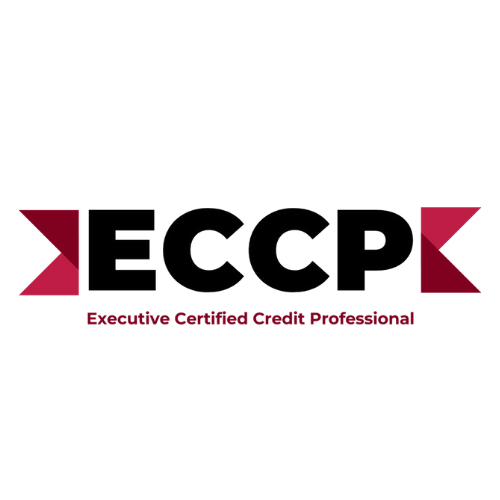Programs
Executive Certified Credit Professional Program (ECCP)

Program Overview
“Ongoing learning and professional development are essential to remaining relevant since our profession, our world, and how we serve our customers are constantly changing…Extensive consultations with credit practitioners and subject matter experts resulted in the ECCP program curriculum. This program will supplement your existing knowledge, allowing you to stay informed while investing in your future.”
Ed Walsh, CCP, CCE, Chair, President & Dean, Credit Institute of Canada
“One of the core mandates of the Institute is to support its members in their career goals. A fundamental principle of our mission statement is to provide continuous learning. We believe that by offering a post-graduate level program for our designated members, it will help better equip them in their future aspirations in the credit profession.”
Ken Young, CCP Emeritus, Chair of the National Education Committee
Program Highlights
The key features that make the Executive Certified Credit Professional Program (ECCP) program Canada’s leading designation in credit management
- 10 hours on-demand videos
- Independent & Collaborative Assignments
- Panel Presentation
- Synchronous Learning (live lectures)
- Thought Leaders: Guest speakers
Courses
Overview
This interactive online course is intended to provide those taking it with a background in risk management as it relates to the credit unit in a business. Starting with an introduction to the concept of risk management using an objectives and performance approach, the course takes a deeper dive at risk management in relation to specific credit objectives.
Topics Covered:
- Introduction to Risk Management
- Technology Risk
- Scoring Models Risk
- Reputation Risk
- Legal Risk
- Bankruptcy and Insolvency Risk
- Fraud Risk
- International Credit Risk
Textbooks are not required for this course.
Schedule: April 8, 2024 - June 5, 2024
Instructor/Developer Bio
 | Tim Leech, FCPA, CIA, CRMA Tim is founder and Managing Director at Risk Oversight Solutions. His focus for the past 30 years has been promoting the business case for, and helping organizations implement, strong management driven objective centric risk and certainty management. He has received awards for outstanding contributions from CPA Ontario, IIA, ACFE and OCEG. His work in the field of strategy and risk governance has been recognized by articles published by Harvard and Columbia Universities, London School of Economics, the IIA, Conference Board, and many others.Tim has provided training and advice to major corporations around the world including Mobil, Shell, Telstra, NAB, KPMG, RBC, CIBC, MBNA, Manulife, Canadian federal government, BellSouth, Sonera, Rabobank, ABN Amro, Novartis, TMX, City of Burlington, public sector organizations at all levels, SVG Capital, and hundreds of others.Specialties: Helping organizations implement strong management driven strategy and risk governance frameworks, advising and training boards and C-Suites to meet escalating risk oversight expectations, independent assessment of effectiveness of enterprise risk management frameworks, assessment of the effectiveness and alignment of strategy, risk and internal audit functions, and expert witness opinions on director/officer strategy and risk oversight due diligence. |
Overview
The ECCP Advanced Finance course complements and transcends the courses participants have already taken in CIC’s existing education curriculum for its CCP program.
The primary objective of the course is to enhance the quantitative & qualitative analytical skills that can enhance credit professionals' capabilities when assessing creditworthiness.
Topics Covered:
- Innovative Financial Statement Analysis I
- Innovative Financial Statement Analysis II
- Understanding the Statement of Cash Flows
- Predicting Enterprise Cash Flows
- Introduction to Valuations & Application to Credit Issues
- Benefits and Costs of Credit
- Specialized Topics in Credit Analysis
- Industry Challenges & Innovations
Schedule: October 21, 2024 - December 18, 2024
Instructor/Developer Bio
 | Brad MacMaster, BSc, MBA, CPA, CA, CMC, PhD As the past CFO of six entrepreneurial ventures, perceived problems with the effectiveness of entrepreneurial teams led Brad to embark on a research career in search of solutions. He submitted his PhD dissertation at The Hunter Centre for Entrepreneurship, Strathclyde Business School (Glasgow, UK) in July 2022 and successfully defended it in September 2022. He is now working on sharing his findings with the venture capital community in Canada. Additionally, Brad teaches a variety of business subjects (accounting, finance, and entrepreneurship) at the graduate and undergraduate levels at Ontario universities – mostly through course he has developed. His most recent appointment being at the Ted Rogers School of Business Management – Toronto Metropolitan (formerly Ryerson) University. Of particular interest to our ECCP program are Brad’s hands-on experience and teaching of financial management and financial analysis. The early stage of Brad’s career spanned 10 years working as a financial services professional – Chartered Accountant (CPA, CA) and also a Certified Management Consultant (CMC) – a significant portion of which involved advising entrepreneurs and ‘entrepreneurial enterprises’ about planning for, growing, developing and financing their business ventures. |
Overview
Unethical behaviors in business create the potential for broad-ranging liability. From brand erosion and loss of trust to legal sanctions and costly fines, the consequences are serious. As credit risk professionals, we have a dual role to play when it comes to business ethics. Firstly, we need to ensure that our own behaviors are ethical, and secondly that it is part of our due diligence to assess if our customers are engaging in business practices that could jeopardize our exposure as creditors.
Using the theoretical concepts introduced in the course, participants will have a basis for understanding ethical decision making, and also for analyzing some of the issues confronting the industry.
Topics Covered
- Overview to Business Ethics and Credit Professionals
- Corporate Social Responsibility
- Diversity and Human Rights
- Stakeholders and Business Ethics
- Ensuring Compliance
- Environmental
- Managing Business Ethics
- Future Business Ethics Issues for Credit Professionals
Instructor/Developer Bio
 | Tom Cooper, B.Comm. (Co-op), BA, PhD Dr. Cooper is also a regular speaker to industry conferences on his research. He holds a doctor of philosophy (PhD) in business from the Warwick Business School, University of Warwick as well as a Bachelor of Commerce (Co-op) and Bachelor of Arts (Philosophy) from Memorial University. |
Overview
This course is intended for business professionals who wish to enhance their supervisory skills as well as for those who want to learn how to implement them. The topics were selected specifically to address the challenges that credit professionals encounter in managing talents as they rise through the ranks. After completing this course, students will have a better understanding of proven theoretical concepts with practical applications in managing and leading others under their supervision.
Topics Covered:
- Act with Impact & Influence
- Mobilization of your work team
- Problem Solving
- Performance Management
- Create Winning Partnership
- Effective Team Management
- Conflict Resolution
- Delegation & Empowerment
Note
Cours dispensés en anglais et en français
Instructor/Developer Bio
 | James Beatty Hunter, B.A. (University of Toronto), MPhil. (University of Oxford), Graduate Diploma in Management (Leadership) (McGill University) James Beatty Hunter is an instructor at McGill University’s School of Continuing Studies in its graduate diploma and certificate leadership program, and also works with the School’s Professional Development department to develop and facilitate corporate training programs and workshops. He is a specialist in leadership and leadership development, working with individuals and organizations to advance their leadership learning needs and goals. He is a consultant, coach and teacher. He has worked in leadership development and management consultancy in the media, telecommunications, real estate, civil aviation, and education industries. His focus is on individual self-affirmation, professional fulfillment, and the potential in transforming self-awareness; organizationally his concentration is in assessing organizational culture, and the understanding and management of paradox and change. His deepest and most passionate pursuits are in developing self-awareness and greater self-leadership, creativity, and effective and supportive communication. |
ECCP Requirements
Students achieve the Executive Certified Credit Professional (ECCP) designation by successfully completing the following requirements:
- Successful completion of four advanced-level courses
- CCP membership in good standing
- Minimum 10 years in credit industry
Assessments and Grading
Course Work
Each ECCP course incorporates recorded and live lectures, group activities, independent and collaborative assignments and discussions.
Minimum Passing Grade
The final mark for a course is calculated as a combination of marks obtained on written assignments and participation in the course activities. The minimum passing grade is 65%.
Grading and Evaluation
Marks allocation differs from course to course. Detailed breakdown is posted on the portal for each course.
Course Schedule
| Semester | Start |
|---|---|
| Fall 2025 | October 13 – December 11, 2025 |
| Winter 2025 | January 20 – March 20, 2025 |
| Spring 2025 | April 7 – June 4, 2025 |
Related Programs

A flexible, online program offering foundational knowledge in credit, accounting, and business law, perfect for those starting out or upskilling in credit roles.

Practical training in collections, skip tracing, and legal remedies. Delivered online with real-world scenarios and a certificate upon completion.

Advanced certification for senior credit professionals to enhance strategic thinking, ethics, and leadership in credit management.

Focused, standalone modules on credit essentials like financial analysis, fraud, and credit policy, earn PD points at your own pace.